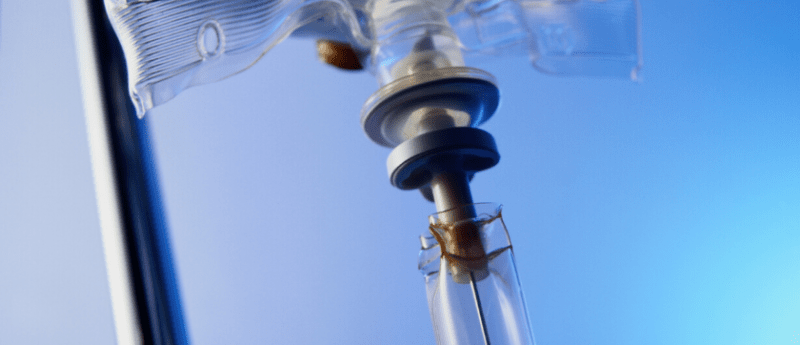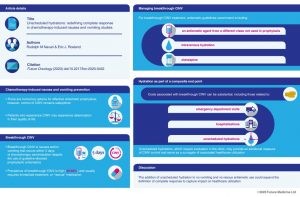Unscheduled hydrations: redefining complete response in chemotherapy-induced nausea and vomiting studies

This article reviews the prevention and management of breakthrough chemotherapy-induced nausea and vomiting (CINV) and how this impacts healthcare utilization. The results from previous studies suggest that unscheduled hydrations could be important to include in the evaluation of CINV prevention, aligning with cost-effective cancer care. Based on these results, the authors discuss the possible inclusion of unscheduled hydration as part of a composite end point in future CINV studies.
The latest review article published in Future Oncology describes optimal CINV prophylactic strategies.
Abstract:
Breakthrough chemotherapy-induced nausea and vomiting (CINV) is nausea and/or vomiting occurring within 5 days of chemotherapy administration despite using guideline-directed prophylactic antiemetic agents. It is highly prevalent (30–40%), usually requiring immediate treatment, or ‘rescue’, medication. If breakthrough CINV occurs, antiemetic guidelines recommend using an antiemetic agent from a different class not used in prophylaxis, along with intravenous hydration and/or dexamethasone. Data supporting these guideline recommendations are limited. Importantly, costs associated with breakthrough CINV can be substantial (i.e., unscheduled hydrations). Two retrospective analyses evaluating guideline-adherent CINV prophylaxis suggest that the initial antiemetic selection may decrease breakthrough CINV. Here we review optimal CINV prophylactic strategies and introduce unscheduled hydration as a potential important surrogate for breakthrough CINV aligning with cost-effective cancer care.
View the full infographic:
